Why Accredited Intelligence Certifications are a Career Multiplier
In today's intelligence field, experience alone isn't enough. Agencies and private sector employers now demand proof of specialized knowledge through credentials that validate your expertise, open doors to advanced roles, and carry government or industry recognition. Best accredited intelligence certifications are that proof.
These certifications show you have mastered the tradecraft, understand key frameworks, and can adapt to emerging threats. They are recognized by government agencies like the Department of Defense (DoD), aligned with frameworks like NICE and DoD 8140, and trusted by employers across all sectors.
They prove you're not just competent—you're committed. According to a Global Knowledge study, certified professionals can earn up to 15% more than their non-certified peers. Whether you're a detective moving into analysis, a military analyst transitioning to civilian roles, or a federal investigator seeking specialization, the right certification is a career multiplier.
I'm Joshua McAfee, and I've built my career creating systems that advance professionals in law enforcement and intelligence. At McAfee Institute, we've helped thousands earn the best accredited intelligence certifications to advance their careers.
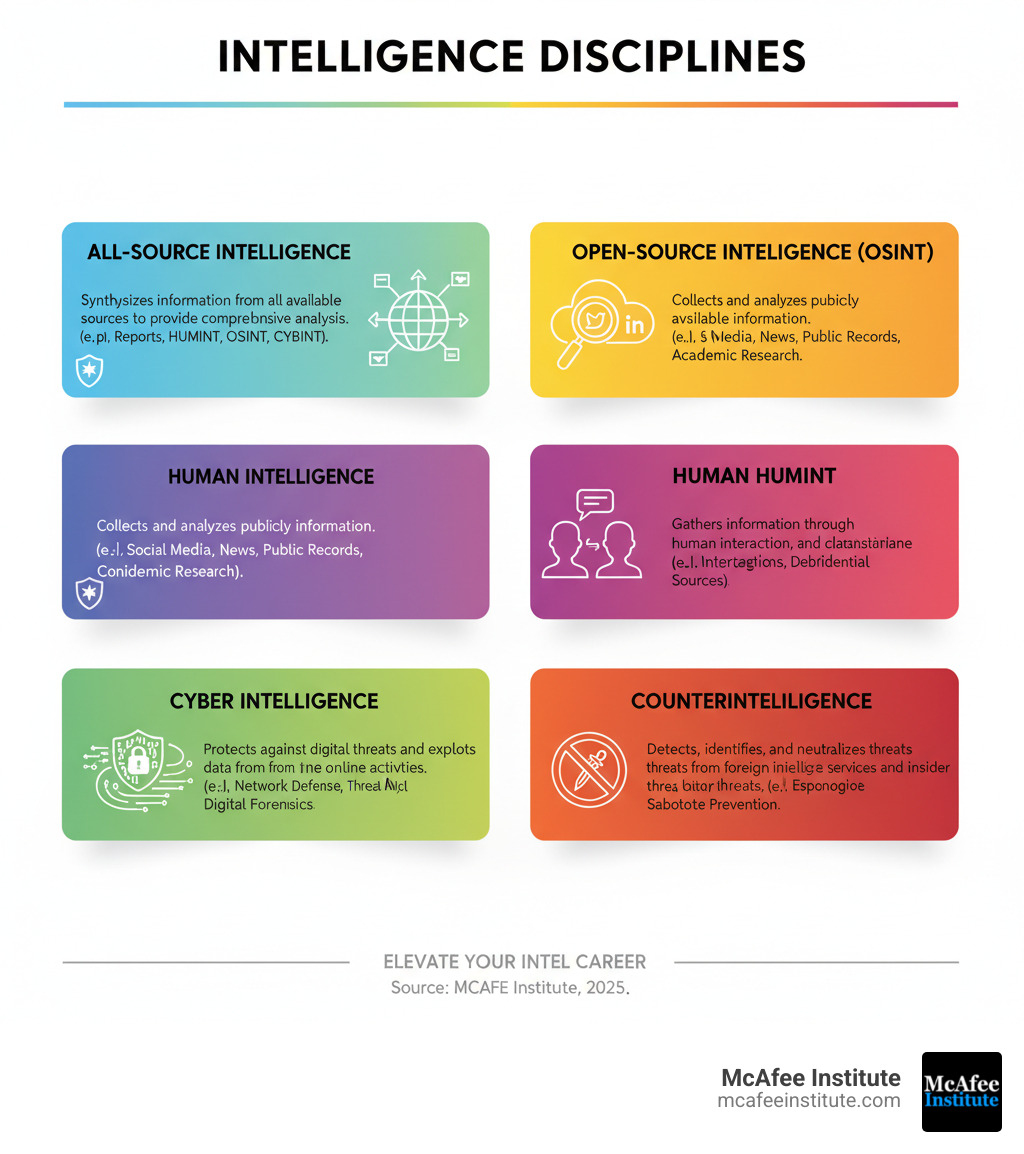
Understanding Accreditation and Its Importance
Accreditation is a formal process where an independent body verifies that a program meets established standards of quality. For intelligence professionals, this stamp of approval is critical. It means the skills you gain are practical and recognized by the broader intelligence community.
Government agencies often rely on certifications aligned with frameworks like the DoD 8140 Directive and the NICE Framework, which ensure individuals possess core competencies for critical intelligence functions. Accreditation also builds employer trust, signaling that you've completed a standardized, quality-controlled learning process. Our programs at McAfee Institute are recognized by entities like the DoD for Credentialing and COOL and the Missouri Department of Higher Education & Workforce Development (MDHEWD), signifying our commitment to these high standards.
To learn more about what makes a certification truly recognized, you can find more info about our accreditation.
The Tangible Benefits of Getting Certified
Investing in an intelligence certification provides tangible career multipliers. First, certifications are a powerful tool for career advancement, demonstrating a proactive approach to mastering specialized skills. In a competitive landscape, employers actively seek talent with superior training.
Financially, a Global Knowledge study found that certified individuals can earn up to 15% more than their non-certified peers. Beyond salary, certifications open doors to promotions and leadership roles. They also ensure you stay current with evolving threats and technologies, as many require continuous learning to maintain. If you're curious about how specific certifications can transform your career, we encourage you to read more about why OSINT certifications are essential for your career.
Government vs. Private Intelligence Certifications: What's the Difference?
When mapping out your intelligence career, you'll need to decide between government certifications and those from private organizations. Understanding the differences helps you choose the right path for your goals.
Government certifications are typically for those already in the Intelligence Community or Department of Defense, focusing on specific federal and military job roles. Private certifications serve a wider audience, including law enforcement, corporate security professionals, and military personnel transitioning to civilian roles.
Both validate skills and carry weight, but they are built for different audiences and have different trade-offs.
Here's a quick breakdown of how they compare:
| Aspect | Government Bodies (e.g., DoD, NGA) | Private & Professional Organizations (e.g., McAfee Institute, IALEIA, SCIP) |
|---|---|---|
| Target Audience | Primarily military, federal civilian, and contractors working for IC | Broader audience: law enforcement, corporate security, private investigators, intelligence analysts, military transitioning to civilian |
| Cost | Often no direct cost to the individual if employed by the government; covered by agency | Varies widely; can range from hundreds to thousands of dollars; may offer scholarships or payment plans |
| Accessibility | Restricted by employment status, citizenship, and often security clearance requirements | Generally more accessible; open to wider range of professionals; often online and self-paced options |
| Recognition | Highly recognized within specific government agencies and the Intelligence Community | Industry-recognized; often valued in specific private sectors, law enforcement, and for career transition |
| Renewal | Typically requires retesting or continuous professional development (e.g., CPEs) within a specific timeframe (e.g., 5 years) | Varies; some require CPEs, others offer lifetime access with free updates (like McAfee Institute), some require membership renewal |
Certifications from Government Bodies (DoD, NGA)
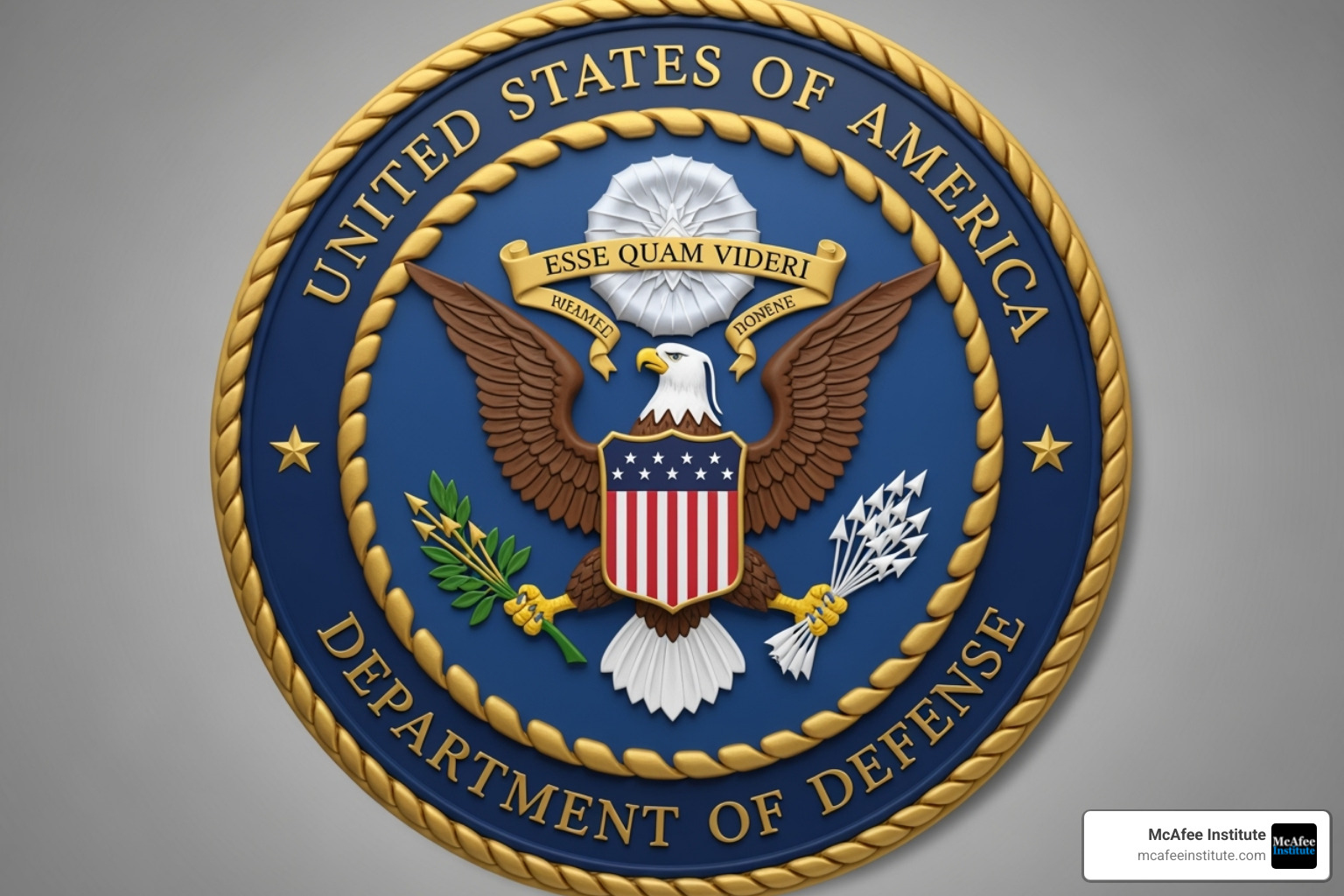
If you're a federal employee or in the military, government certifications are a direct path to advancement. The Department of Defense and agencies like the National Geospatial-Intelligence Agency offer highly respected credentials built for specific roles. Examples include the Certified Defense All-Source Analysis (CDASA), the Intelligence Fundamentals Professional Certification (IFPC), and the GEOINT Professional Certification (GPC). You can learn more about the IFPC Certification or explore details on the GPC Certification.
Eligibility is strict, often requiring U.S. citizenship, current employment with the DoD, and a security clearance. The major benefit is that your agency typically covers the cost. However, access is limited for those outside the federal or military workforce.
Certifications from Private & Professional Organizations
If you're in law enforcement, corporate security, or transitioning from the military, private certifications offer the most opportunity. They provide flexibility, accessibility, and broad recognition.
Organizations like the International Association of Law Enforcement Intelligence Analysts (IALEIA) and Strategic & Competitive Intelligence Professionals (SCIP) offer credentials trusted by public and private sector employers. IALEIA's certifications are rooted in law enforcement standards, while SCIP's program focuses on competitive intelligence.
At McAfee Institute, we build our programs for professionals who need government-recognized credentials without government-level access restrictions. Our certifications are accredited by multiple U.S. government agencies and educational bodies, including the DoD for Credentialing and COOL and the Missouri Department of Higher Education & Workforce Development (MDHEWD).
What sets us apart? Lifetime access and live support. You pay once for lifetime access, with no annual renewals and free updates as the field evolves. This is a significant advantage over certifications requiring costly recertification. Our content is designed by experts with real-world experience, ensuring you learn tradecraft that translates directly to the job. Private certifications offer the flexibility and recognition you need to advance your career on your terms.
A Curated List of the Best Accredited Intelligence Certifications
Choosing the right intelligence certification can be overwhelming. This curated guide highlights the best accredited intelligence certifications that are recognized for their rigor and relevance to real-world intelligence work.
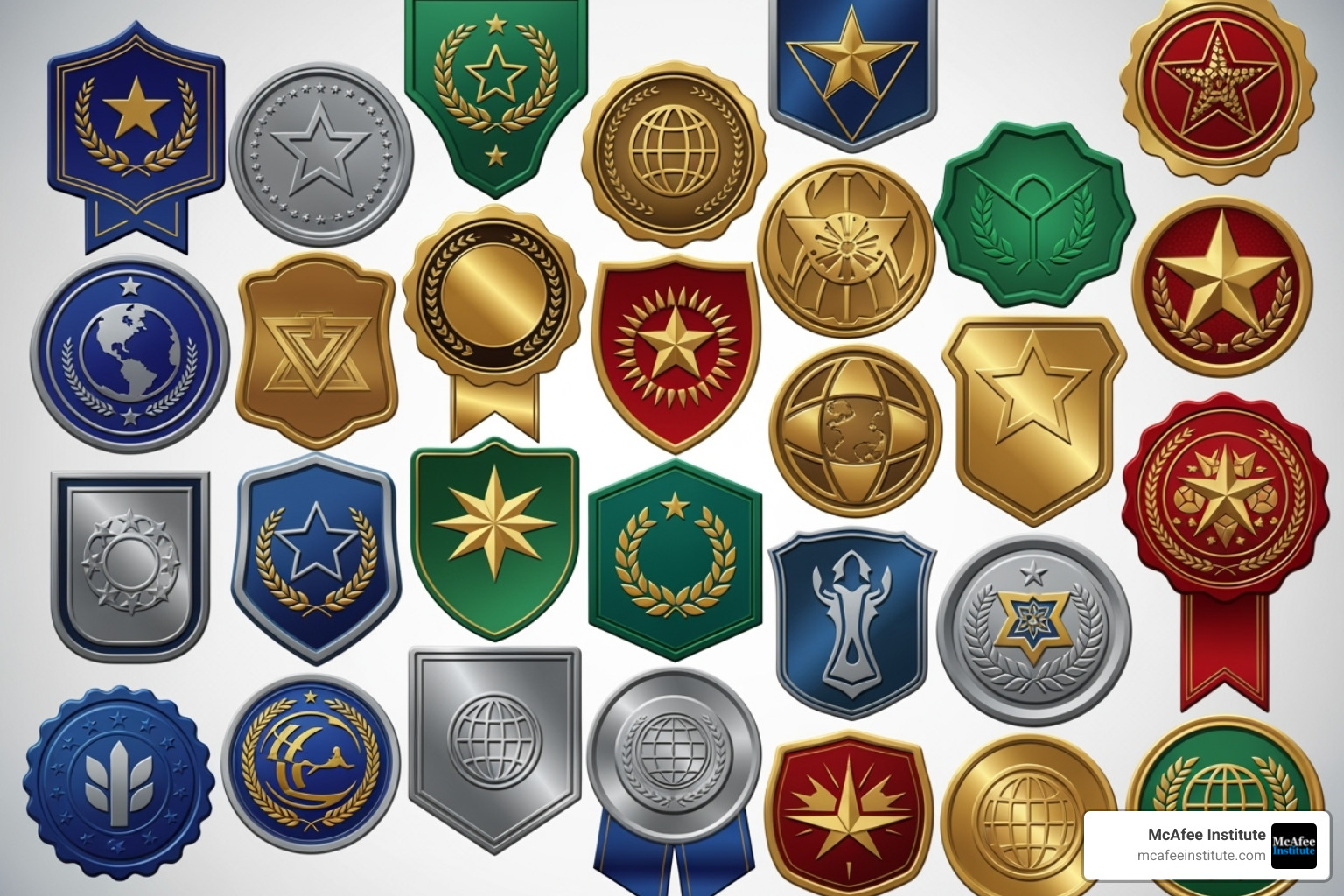
All-Source & General Intelligence Analysis
All-source analysis is the foundation of an intelligence career, teaching you to synthesize information from multiple sources into actionable intelligence.
Certified All-Source Intelligence Professional (CASIP): Designed for analysts in both government and private sectors, this certification covers the entire intelligence cycle. It's ideal for those seeking credentials that are valuable across different employers. View the CASIP Program.
Certified Defense All-Source Analysis (CDASA): This DoD-specific certification is custom to military and civilian personnel, assessing foundational knowledge and analytical skills for defense intelligence. Learn more about the CSADA Certification.
Criminal Intelligence Certified Analyst (CICA): Offered by the International Association of Law Enforcement Intelligence Analysts (IALEIA), this certification recognizes the unique demands of intelligence work in a law enforcement context.
Open-Source Intelligence (OSINT) & Social Media Intelligence (SOCMINT)
OSINT and SOCMINT are essential tools for any intelligence professional. These certifications teach you to ethically and legally leverage publicly available information.
Certified Open-Source Intelligence (OSINT) Expert: This certification teaches advanced techniques for collecting, analyzing, and verifying public information, emphasizing ethical guidelines and the use of specialized tools. Explore the OSINT Certification.
Certified Social Media Intelligence Expert (CSMIE): This program focuses on leveraging social media for intelligence gathering, including techniques for dark web analysis, digital footprinting, and understanding online behavioral patterns. Become a CSMIE.
What to Look for in the Best Accredited Intelligence Certifications for Cyber Intelligence
Cyber intelligence is a fast-growing specialization focused on the intelligence work behind digital threats, not just technical IT security.
Certified Cyber Intelligence Professional (CCIP): Developed with the Department of Homeland Security's framework, this certification focuses on the intelligence aspects of cyber threats. It equips you to profile threat actors and understand the "who" and "why" behind their actions. Learn about the CCIP.
GIAC Cyber Threat Intelligence (GCTI): Offered by GIAC, this certification takes a more technical approach, validating skills in developing and implementing cyber threat intelligence programs and producing actionable threat reports.
Specialized & Niche Intelligence Certifications
These certifications provide deep expertise for specific investigative domains.
Certified Human Trafficking Investigator (CHTI): Provides specialized skills for victim-centric investigations, using an intelligence-led approach to identify trafficking networks and rescue victims. Details on the CHTI Program.
Certified Counterintelligence Threat Analyst (CCTA): Focuses on detecting and mitigating insider threats like espionage and data theft by developing robust counterintelligence strategies. View the CCTA Certification.
Certified Digital Currency Investigator (CDCI): Equips you with skills in cryptocurrency forensics and blockchain analysis to trace illicit transactions and combat digital financial crime. Become a CDCI.
Preparing for and Advancing Your Intelligence Career

Earning one of the best accredited intelligence certifications is about building a foundation for long-term success. Preparing effectively, understanding the costs, and choosing strategically will make all the difference.
How to Prepare for Certification Exams
With the right approach, you can set yourself up for success. Start with official training courses and study guides, which are designed to cover exam content. At McAfee Institute, our programs include comprehensive self-study materials and live instructor support.
Real-world experience is crucial for understanding intelligence work, which is why many advanced certifications require it. If you're new to the field, look for opportunities to apply what you're learning through projects or exercises.
Practice exams are non-negotiable for understanding the format and identifying weak areas. Finally, if your certification offers lifetime access to materials, like ours at McAfee Institute, use it to your advantage. The ability to revisit updated content is invaluable for staying current.
Understanding the Costs and Renewal Requirements
Understanding the full financial picture is crucial. Exam and training fees can vary widely. Some organizations bundle these costs, while others charge separately.
Many certifications also require annual maintenance fees (AMFs) and Continuing Professional Education (CPE) credits to remain active. For example, both the CICA and CDASA certifications require recertification every five years, which involves ongoing costs and effort.
This is where the lifetime certification model really shines. At McAfee Institute, you pay once, and your certification remains valid for life—no annual renewal fees, no mandatory CPEs, and free updates to course materials. Over a career, the savings can be substantial, and it provides peace of mind knowing you won't face recurring fees. You can view certification renewal options to compare different models.
How to Choose from the Best Accredited Intelligence Certifications for Your Career
How do you choose the right certification? Start by assessing your current role and skills to identify any gaps. Next, define where you want to be in three to five years. Your long-term goals should guide your choice.
A practical step is to research what employers are asking for in job postings for your target roles. If a certification appears repeatedly, that's a strong signal of its market value.
Your sector also matters. Government certifications like CDASA are ideal for the DoD ecosystem, while law enforcement professionals may prefer a CICA. For corporate intelligence or military-to-civilian transitions, certifications from organizations like McAfee Institute offer broader applicability.
Finally, talk to professionals who hold the certifications you're considering. Their insights can be invaluable. The right choice is the one that aligns with your specific goals and moves you closer to where you want to be. We encourage you to explore all board certifications to find the perfect match.
Frequently Asked Questions about Intelligence Certifications
Are intelligence certifications worth it for career advancement?
Yes, absolutely. The best accredited intelligence certifications validate your skills, demonstrate commitment, and can lead to higher pay and promotions. From a hiring manager's perspective, a recognized certification proves your competency through a standardized process, removing guesswork and boosting your credibility.
Beyond credibility, certifications often translate into financial benefits. As mentioned, certified professionals can earn up to 15% more than their non-certified peers. They also frequently open doors to leadership positions and specialized roles that might otherwise be out of reach.
Which intelligence certification is best for a beginner?
For beginners, a foundational certification provides a solid base. The Intelligence Fundamentals Professional Certification (IFPC) from the DoD is an excellent choice for those targeting roles within the defense intelligence workforce.
Another strong option is the Certified All-Source Intelligence Professional (CASIP). It provides a comprehensive understanding of the entire intelligence cycle, making it ideal for those in government, law enforcement, or transitioning to the private sector. Both prepare you for more advanced credentials later on.
Can I get certified with no experience?
It depends on the certification. Some entry-level programs have no strict experience prerequisites and are designed to introduce you to core intelligence concepts. However, most advanced and specialized credentials require a combination of education and verifiable work experience in an intelligence or investigative role.
This requirement ensures that certified professionals can apply theoretical knowledge to real-world scenarios. Always check the eligibility requirements for the specific certification you're interested in. At McAfee Institute, we are transparent about our requirements and can help you determine the right fit for your experience level.
Take the Next Step in Your Intelligence Career
You're serious about building a meaningful career in intelligence. You want real training, certifications that open doors, and knowledge that translates into impact.
The best accredited intelligence certifications are proof that you've mastered specialized skills that employers actively seek. They validate your expertise and position you as a professional who stays ahead of evolving threats.
In a field where continuous learning is essential, the professionals who thrive are those who never stop growing. The path to leadership roles in a fusion center, corporate intelligence, or training starts with a foundation built on recognized, accredited training.
At McAfee Institute, our mission is to empower professionals like you. We equip you with the knowledge and credentials that move the needle in your career. That's why our certifications come with lifetime access and live support—no annual renewal fees, just continuous access to updated content and expert guidance.
Our programs are recognized by multiple U.S. government agencies, including the Department of Defense for Credentialing and COOL and the Missouri Department of Higher Education & Workforce Development. Every course is developed by practitioners with real-world law enforcement and intelligence experience.
Whether you're in law enforcement, transitioning from the military, or working in the private sector, our programs are designed to take you where you want to go. The intelligence community needs dedicated professionals with expertise and integrity. If that's you, we built these programs for you.
Ready to take that next step? Explore our Government-Recognized Programs to find the certification that aligns with your career goals. If you're military or transitioning from service, View Military & DoD COOL Programs to see how we support your unique path.


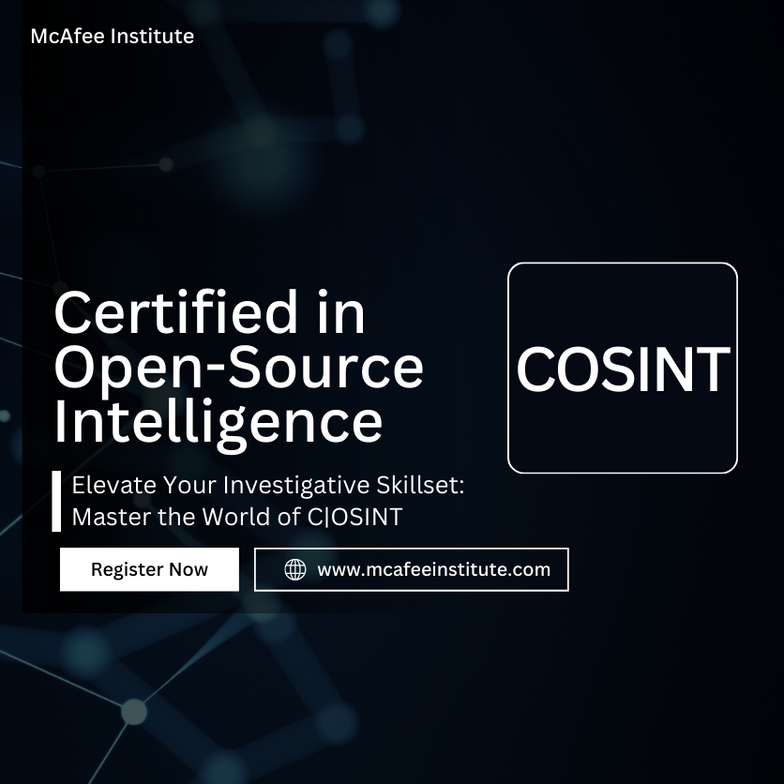
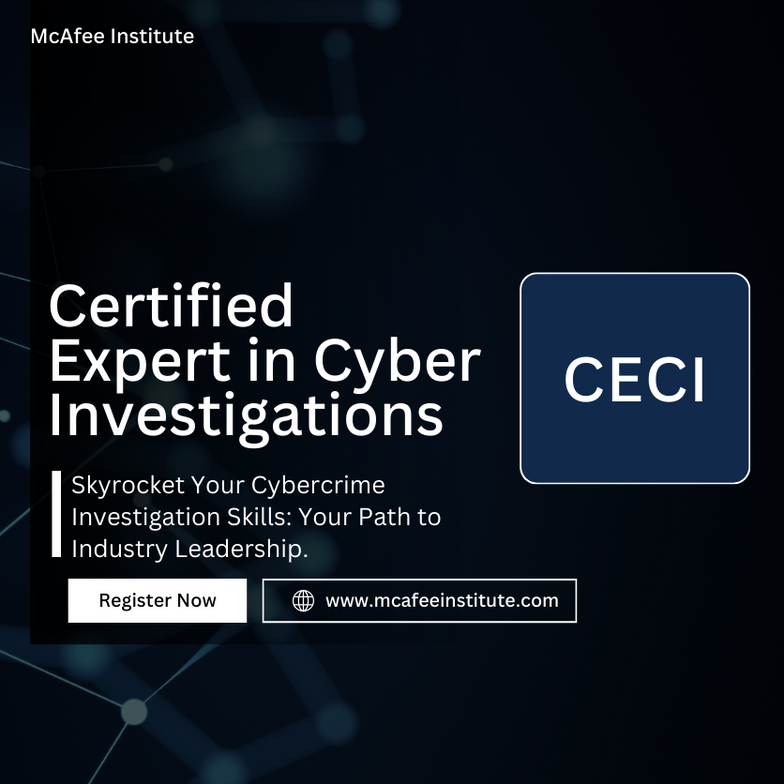
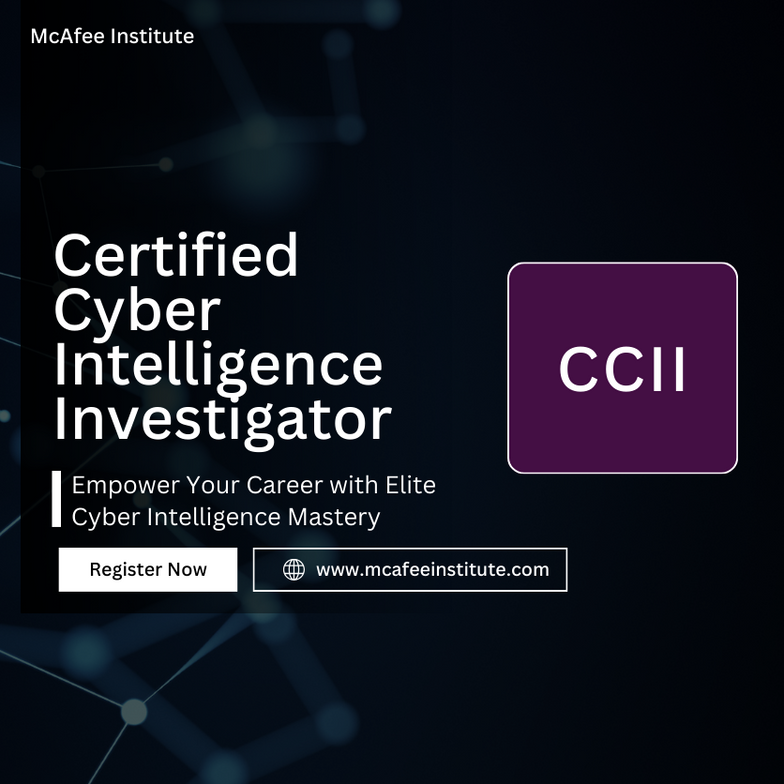
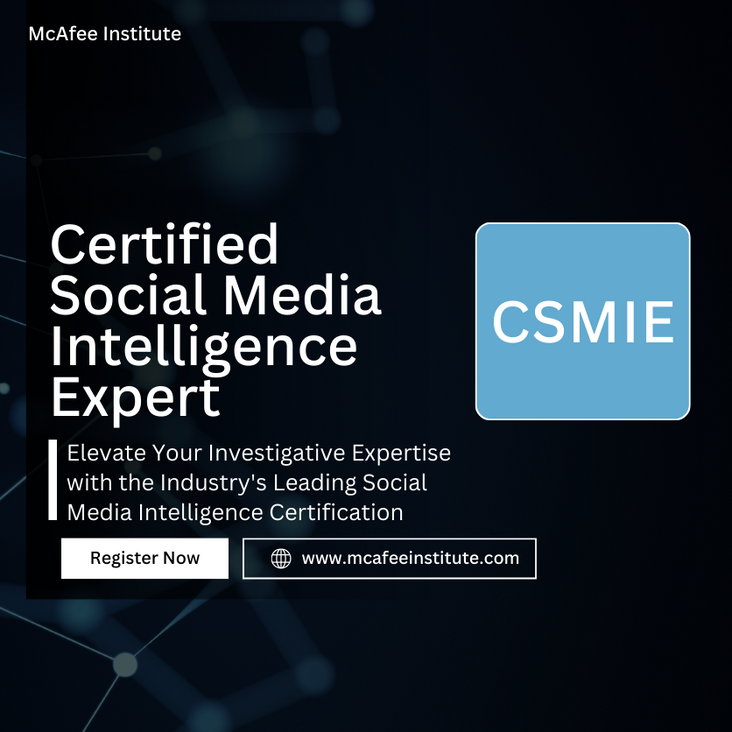
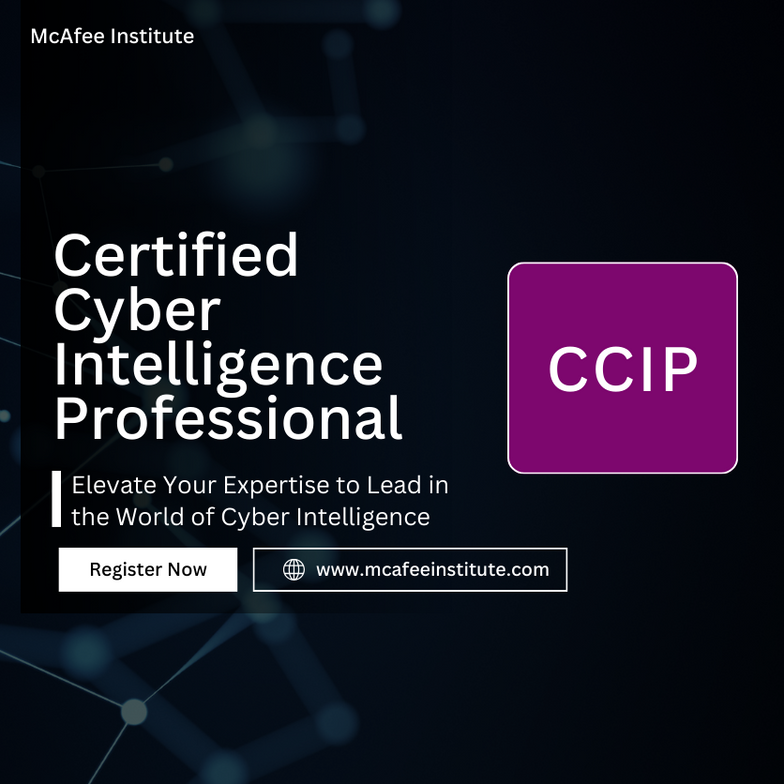
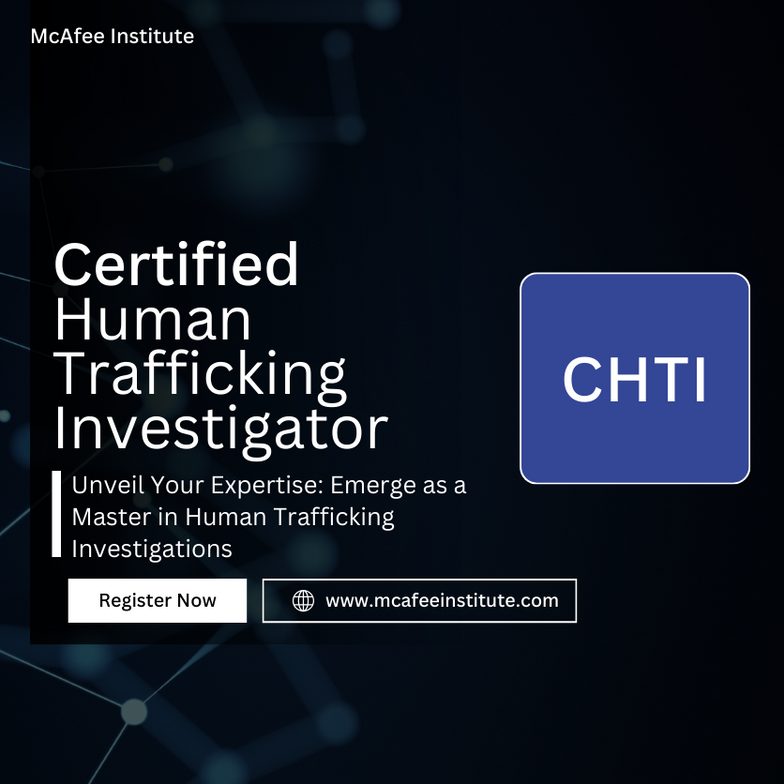



Share:
Leading with Logic: AI-Powered Decision-Making in Public Safety
Master the Digital Underworld: Essential Cyber Crime Investigation Training